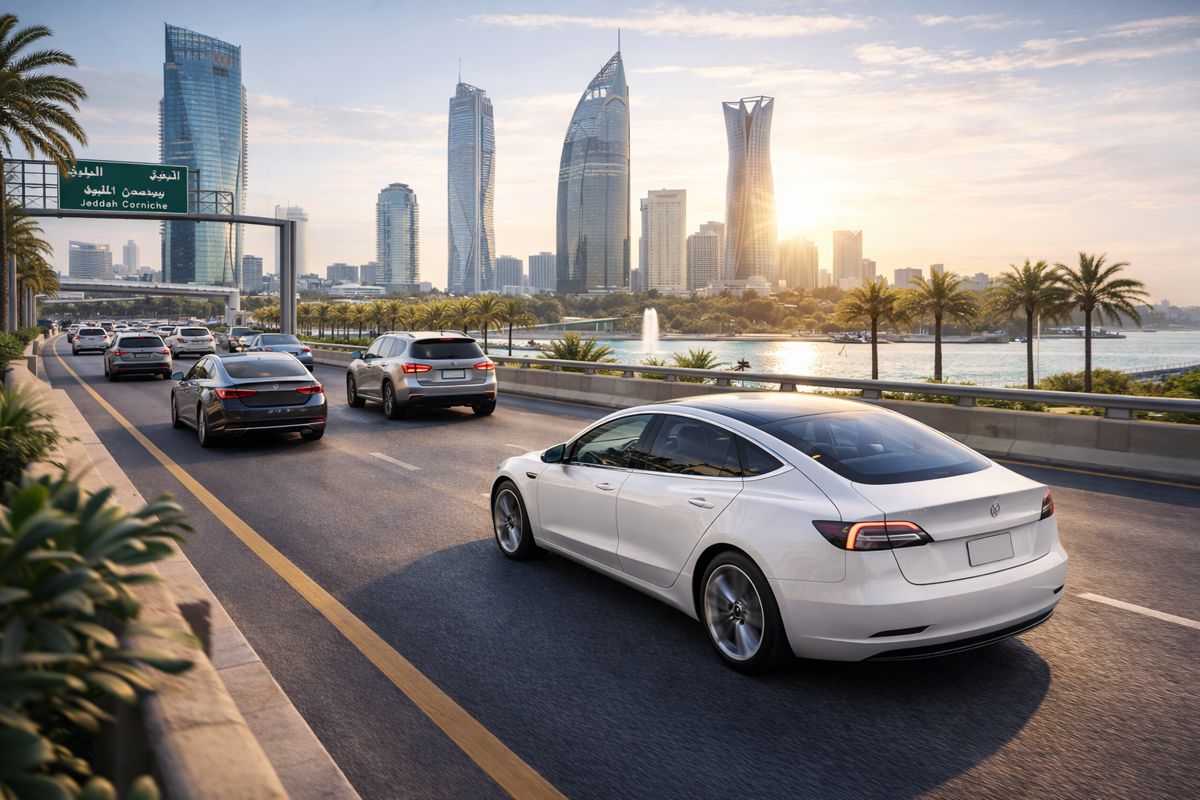Personal Loans for Vehicle Purchases: What You Need to Know
Buying a car is a big deal, but many people can’t afford it in one lump sum. Financing is the answer to such problems. Over 80% of newly sold cars in the U.S. are bought on loans, as are around a third of second-hand cars.
Personal loans are an emergent loan product that most consumers use to fund a car purchase. They are flexible and easy to access. As of the third quarter of 2024, Americans had a personal loan of $24.2 million, one higher than the previous year’s $23.2 million. We will briefly examine why using a personal loan to purchase a car might not be a good idea and walk you through the process of purchasing one.
What Are Personal Loans for Vehicle Purchases?
Personal loans are the type of loans you can secure for almost any purpose, including buying a car. Unlike regular auto loans that offer automobiles as the security for the loan, personal loans are usually given with no collateral required. However, this difference results in higher interest rates attached to personal loans than auto loans.
Personal loans are among the most commonly used types of financing in the United States. On average, Americans borrow around $6,000 through loans that often require no credit check, making them accessible even to individuals with bad credit scores. Lenders primarily base their decisions on the borrower’s income.
Opting for a personal loan to buy a car can be smart when:
- You can’t put your car as collateral. You don’t have to use your car or any other asset as security when taking personal loans.
- You need flexibility. This means using the loan to purchase insurance or car repairs rather than buying the car itself.
- You want to spend money on whatever car you can afford. Get any car, including used ones that auto loans can’t finance.
- You need money urgently. Personal loans can be processed more quickly than any other loan.
- You require a small amount. It is still effective when you are purchasing a relatively affordable car.

Benefits of Using Personal Loans for Vehicle Financing
Auto financing focuses on personal loans useful for buying a car for daily transport. Here’s why:
- Freedom in Spending. You can pay for purchasing a new or used car from a private vendor using a personal loan. Besides, it can cover other expenses, including taxes, insurance, and repairs.
- No Collateral is Needed. Auto loans, on the other hand, differ from personal loans because your car is not seized as security in the loan. If you can’t repay, your vehicle can’t be repossessed.
- Competitive Interest Rates. Credit can help obtain a personal loan, and one might be lucky to find a decent one (up to 36%). Of course, auto loans typically have lower rates because they are secured by the car as collateral.
- Quick Approval. Like many other online applications, this one is very easy to complete. If you apply on a business day, you can receive your cash by the end of that day. This speed lets you lock in a good car deal when you find one.
Drawbacks to Consider
Applying for such a loan seems easy, but a few factors must be considered before taking out a loan:
Higher Interest Rates
Personal loans are usually more expensive than secured auto loans because they are unsecured. They don’t require security like your car to be offered to you. The advantages, such as flexibility, can be experienced while sacrificing another factor, such as cost.
Shorter Loan Terms
As a rule, personal loans are characterized by a relatively short term. This means that you will be required to make monthly payments before you complete the repayment of the loan, and this can prove very costly.
Impact on Credit Score
Credit information is also affected when you borrow cash. A personal loan hurts your credit score because it raises your credit utilization rate. If you default, your credit rating will decrease.

Eligibility Criteria for Personal Loans
Getting a personal loan? The following is what you need to understand about eligibility:
- Credit Score.The amount you earn and your credit score matter most in this case. It shows lenders if you are a good money manager. Having a good or fair credit score increases your approval chances. Secondly, you may qualify for a lower interest rate. A bad credit could be increased interest rates or being turned down. If you do end up being turned down by multiple lenders, consider options for bad credit car loans like Azora to help with your car financing in a pinch. These types of loans are great if you have an existing bad credit history and need a chance to get back on your feet.
- Income Requirements. The borrowers also must understand what they can pay over the given period as a particular lender. That’s why lenders check your income. Almost every employer prefers a steady job and a minimum income level (from $1,000 per month).
- Debt-to-Income (DTI) Ratio. Your DTI ratio is key. It’s how much you are already in debt related to your income. Banks and other lending agencies prefer borrowers to maintain their DTI ratio below 36%. They may feel you can pay higher loans if you set it very high.
Steps to Get a Personal Loan for a Vehicle Purchase
Follow these steps to apply for a personal loan to purchase a car:
- Assess Your Budget. First, you must understand how much you can spend. Do not commit to paying monthly, as this puts too much pressure on your pocket.
- Research Lenders. Banks, credit unions, and online lenders offer personal loans. Compare the interest rates, terms, and charges of the different companies.
- Check Your Credit Score. A credit score is very important. You will favor better interest rates if they are good or fair. If your FICO score is low, increase it before applying for a loan.
- Apply for Pre-Approval. You can prequalify and get an offer before being approved for the loan. This helps give you a clear perspective on the loans and shows lenders that you need money to buy a car.
- Complete the Loan Application. When ready, gather documents such as income proofs, identification cards, and bank statements. Then, fill out the empty spaces, submit the request form, and await approval.

Personal Loans vs. Auto Loans: Which Is Better?
When deciding between a personal loan and an auto loan for financing a car, here’s how they compare:
Auto Loans
- Lower Interest Rates. This means the car is a secured asset, making it safer for lenders. And you can get the maximum APR of 16%.
- Specific Use. The funds can only be used to buy a car.
- Longer Loan Terms. Usually, the loan term is 3 to 7 years, with more time to repay the borrowed amount.
Personal Loans
- Higher Interest Rates. These loans are unsecured, which means no security is needed.
- Flexible Use. Don’t be stuck with the money for the car, whether it’s practical or not, and then spend thousands on repairs.
- Shorter Loan Terms. These loans can be from 1 to 5 years, depending on the conditions of the lending company.
Which to Choose?
- Auto Loan. Suppose you own a car and want to purchase an especially cheap model for a bargain price.
- Personal Loan. Good if you have other needs not covered by the car expense.
Tips for Choosing the Best Personal Loan
A good personal loan is a loan you can afford without straining yourself. Go slow, weigh your options, and sign only when everything seems perfect. Here’s how to pick the right one:
- Shop Around. Don’t accept the first offer. You should look for the best offer from different lenders.
- Check Reviews. Check for the reputation of the lenders. It shows a trustworthy lender if former borrowers discuss clear terms and good customer service.
- Avoid Hidden Fees. Watch out for high charges. You did not know that a loan can be expensive due to the high fees charged by lenders.
- Do the Math. In your decision-making process, don’t just focus on the monthly instalments of the loan. This way, include interest and fees so that you can understand how much you are paying back with your loan.
- Focus on Transparency. Choose a more prominent lender who will reveal all the credit terms. If they’re vague, walk away.

Making the Right Choice for Your Vehicle Purchase
The decision to take a personal loan to purchase cars can be good if appropriately timed – given the type of loan. Personal loans allow you a fair degree of freedom, and you don’t have to approach a single dealership. Also, they might take a shorter time to obtain and be flexible for repairs or insurance.
However, there are also downsides. Credit fees are likely higher than auto loans, although terms may be shorter. However, you must be careful because the price of hiring such a carrier might be higher in the long run.
Moreover, spend time evaluating them. Look at the interest rate, fees, and repayment schedule. Take your time; always searching for a better lender can save you money and grief. Lastly, the best practice is to remain up-to-date and straightforward. Researching in advance will drastically help you avoid problems when purchasing your vehicle.

Expert – Nick Gleason
Nick Gleason, an auto loan expert from Detroit, built his career on making car financing simple and fair. As the founder of DriveWise Financial, he’s helped thousands get better deals with clear, no-nonsense advice. Known for his relatable style and more than 10 years of experience in car lending, Nick’s work has reshaped how people approach auto loans.




























